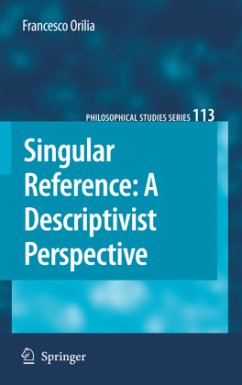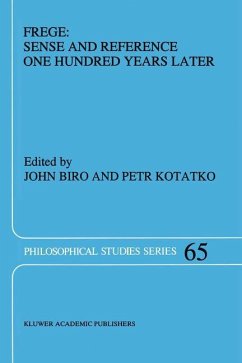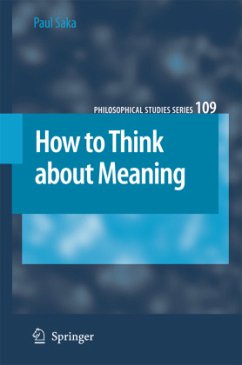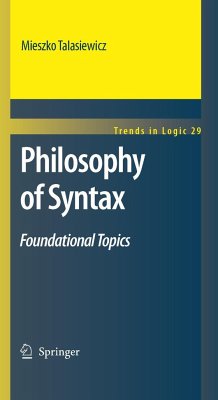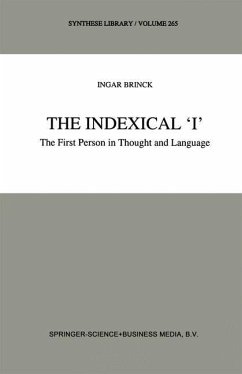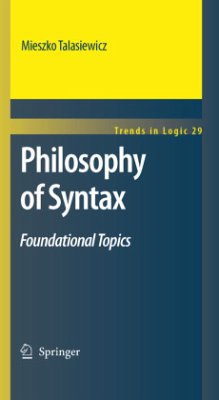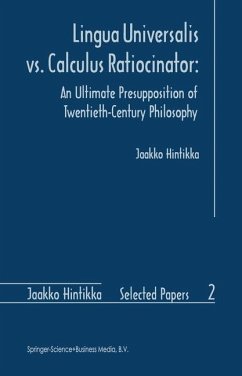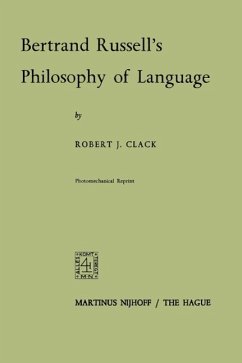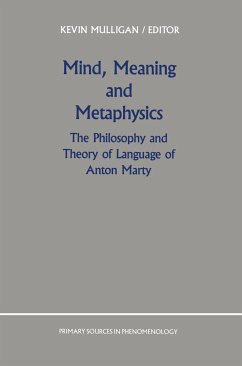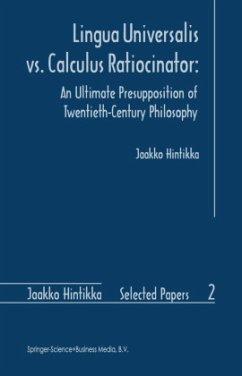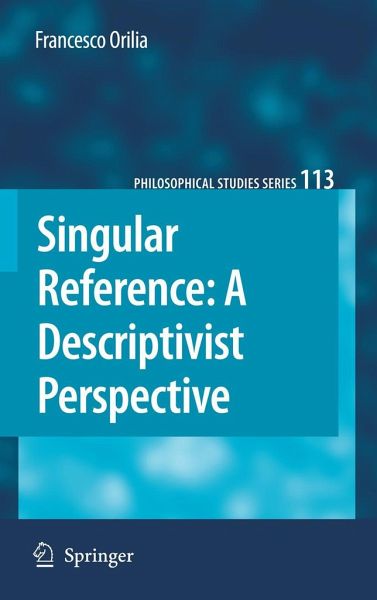
Singular Reference: A Descriptivist Perspective
Versandkostenfrei!
Versandfertig in 6-10 Tagen
113,99 €
inkl. MwSt.
Weitere Ausgaben:

PAYBACK Punkte
57 °P sammeln!
Singular reference to ourselves and the ordinary objects surrounding us is a most crucial philosophical topic, for it looms large in any attempt to understand how language and mind connect to the world. This book explains in detail why in the past philosophers such as Frege, Russell and Reichenbach have favoured a descriptivist approach to this matter and why in more recent times Donnellan, Kripke, Kaplan and others have rather favoured a referentialist standpoint. The now dominant referentialist theories however still have a hard time in addressing propositional attitudes and empty singular t...
Singular reference to ourselves and the ordinary objects surrounding us is a most crucial philosophical topic, for it looms large in any attempt to understand how language and mind connect to the world. This book explains in detail why in the past philosophers such as Frege, Russell and Reichenbach have favoured a descriptivist approach to this matter and why in more recent times Donnellan, Kripke, Kaplan and others have rather favoured a referentialist standpoint. The now dominant referentialist theories however still have a hard time in addressing propositional attitudes and empty singular terms. Here a way out of this difficulty emerges in an approach that incorporates aspects of the old-fashioned descriptivist views of Frege, Russell and Reichenbach without succumbing to the anti-descriptivist arguments that back up the current referentialist trend. The resulting theory features a novel approach to the semantics and pragmatics of determiner phrases, definite descriptions,propernames and indexicals, all treated in uniform fashion in both their anaphoric and non-anaphoric uses.
This work will be of interest to researchers in philosophy of language, philosophy of mind and theoretical linguistics. The wealth of background information and detailed explanations that it provides makes it also accessible to graduate and upper level undergraduates and suitable as a reference book.
This work will be of interest to researchers in philosophy of language, philosophy of mind and theoretical linguistics. The wealth of background information and detailed explanations that it provides makes it also accessible to graduate and upper level undergraduates and suitable as a reference book.




